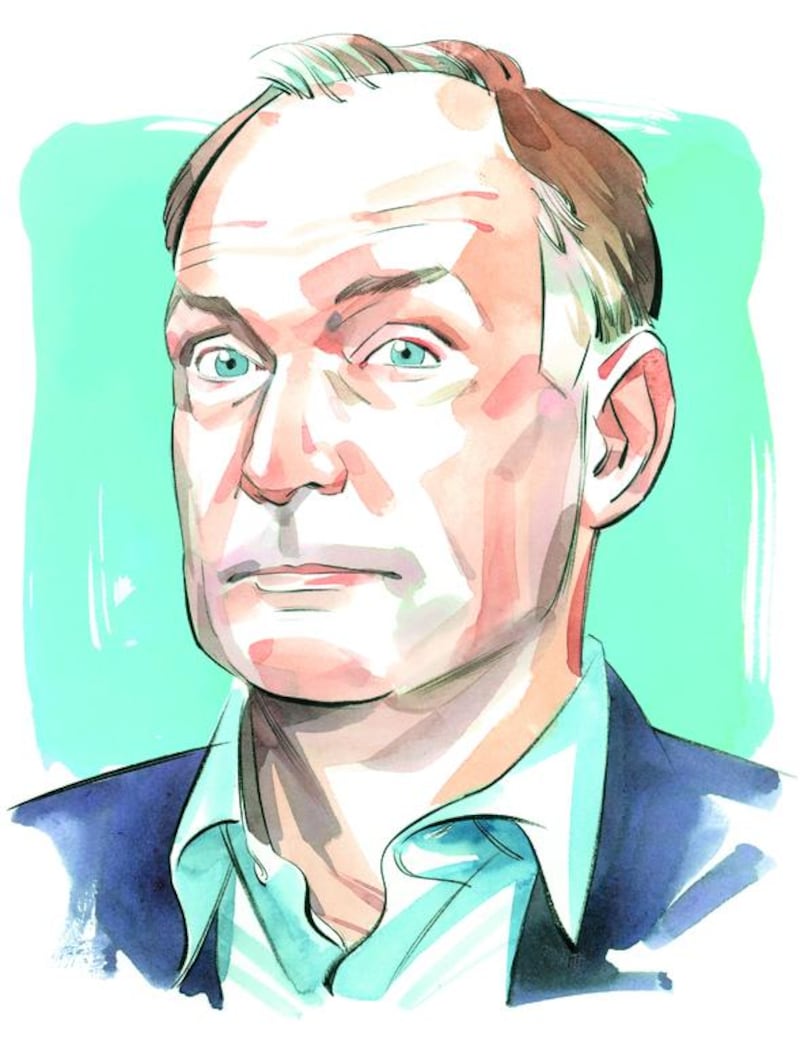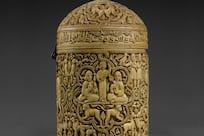It has changed practically everything we do; from the way we work, communicate, shop, book flights and holidays, consume news, listen to music and watch television, to the way some of us search for potential life partners. And Sir Tim Berners-Lee didn’t invent it.
The internet is not the World Wide Web. But Berners-Lee did actually invent the latter, which turned the ripe old age of a quarter of a century on March 12. While the story of a certain missing airplane understandably dominated the news headlines, the birthday of the Web didn’t exactly go unnoticed and Berners-Lee took the opportunity to talk publicly about how he sees it, past present and future. And next week he’ll be in Qatar in person to deliver his lecture, “The World Wide Web and the Next 25 Years”.
He’s seemingly a humble sort, the polar opposite of how you might expect the inventor of something that changed the entire world to be. And he’s on a bit of a crusade at the moment, championing the rights of users of his invention to enjoy a bit of privacy while online. A quaint thought, perhaps, but Berners-Lee reckons a kind of Magna Carta, or bill of rights, is in order.
“It’s time for us to make a big communal decision,” he said in an interview with the BBC. “In front of us are two roads – which way are we going to go? Are we going to continue on the road and just allow the governments to do more and more and more control, more and more surveillance? Or are we going to set up a bunch of values? Are we going to set up something like a Magna Carta for the World Wide Web and say, actually, now it’s so important, so much part of our lives, that it becomes on a level with human rights?”
His recent outspokenness stems largely from the debacle surrounding the whistle-blower Edward Snowden, but Berners-Lee has long been a critic of the tendency for big business to snoop on users of the Web he created, and of government entities farming data when, in his opinion, we should all be free to use it in complete privacy.
Nobody can say for sure when the internet came into being. As far back as the 1960s, American and European scientists were envisaging an era when communication between computers would enrich the lives of users, but who could have foreseen the prolific invasion of home computing, let alone the explosion of “smart” mobile phones with which most of us access the World Wide Web? Certainly not Berners-Lee, who was working for the European Organization for Nuclear Research (CERN), a large particle physics laboratory near Geneva, Switzerland, as a software consultant when he came up with the initial idea.
He says it was all quite simple. With a great many scientists participating in experiments at CERN, who then returned to their laboratories around the world, these people were eager to exchange data and results but faced enormous difficulties doing so. He understood this desire for information swapping and realised the as yet inhibited potential of millions of computers connected together through the internet.
He documented what was to become the World Wide Web with the submission of a proposal to his boss, outlining a set of technologies that would make the internet truly accessible and actually useful to the people who were using it for their work. Despite initial setbacks and with perseverance, by October of 1990 he had specified the fundamental technologies that remain the foundation of today’s Web.
Now 58 years old, Berners-Lee was born in London on June 8, 1955, into a family that was already knee deep in computer technology. His parents, Mary and Conway Berners-Lee, had worked on developing the world’s first commercially available computer, known as the Ferranti Mark 1, which was first pressed into service in 1951. His schooling happened at Sheen Mount Primary and, from 1969 till 1973 he attended the independent Emanuel School in south-west London. His extra-curricular interests were mainly to do with trains and he claims his early knowledge of electronics came as a result of playing with model railways.
Between 1973 and 1976, Berners-Lee attended The Queen’s College at Oxford University and, while there, built his first computer with a soldering iron and an old television set. He graduated with a degree in physics. Early employment saw him working as a telecommunications engineer and a software specialist but it wasn’t long before he arrived at CERN, which is when everything began to come together.
While there on his initial six-month stint, he wrote (for his own private use) his first programme for storing information including using random associations. He says he named it Enquire and it was never published but it did form the conceptual basis for the development work he would end up doing years later, resulting in the world Wide Web.
When he left CERN at the end of December 1980, he took a job at a company called Image Computer Systems Limited, where he worked until 1984, which was when he headed back to CERN on a fellowship to work on “distributed real-time systems for scientific data acquisition and system control.”
“Creating the Web was really an act of desperation,” he once said in an interview with Academy of Achievement, “because the situation without it was very difficult when I was working at CERN later. Most of the technology involved in the Web, like the hypertext, like the internet, multi-font text objects, had all been designed already. I just had to put them together. It was a step of generalising, going to a higher level of abstraction, thinking about all the documentation systems out there as being possibly part of a larger imaginary documentation system.”
He wrote and submitted his initial proposal in March 1989 and, in 1990, with the help of Robert Cailliau, produced an updated version, which was accepted by his manager, Mike Sendall, who thought it all a bit dull. Berners-Lee had taken the basics from his previous Enquire programme and expanded it to create the World Wide Web, for which he designed and built the first Web browser.
“During some sessions in the CERN cafeteria, Tim and I tried to find a catching name for the system,” recalled Cailliau in 1995. “I was determined that the name should not yet again be taken from Greek mythology. Tim proposed ‘World Wide Web’. I like this very much, except that it is difficult to pronounce in French ...”
On August 6, 1991, info.cern.ch went live. It was the world’s first Website and it explained to readers what the World Wide Web was all about, how they could use a browser and set up their own servers (CERN put it back up with its original address last year, if you want to take a look). A “wide-area hypermedia information retrieval initiative” was how Berners-Lee described it.
The potential for the internet was about to be unleashed but his invention was from the very beginning free to everyone, so it wasn’t an instant path to riches. He has done all right for himself over the years, as you might expect, but he’s still hard at work, still fighting for freedom online and advising governments on how they can open up this technology to every person on the planet.
But how does he see the negative aspects of the internet? When asked during an online Q&A session on Reddit if he felt a little like Robert Oppenheimer – one of the primary engineers working on the Manhattan Project which produced the first atom bomb – Berners-Lee replied: “No, not really. The Web is a – primarily neutral – tool for humanity. When you look at humanity you see the good and the bad, the wonderful and the awful. A powerful tool can be used for good or ill. Things which are really bad are illegal on the Web as they are off it. On balance, communication is a good thing I think: much of the badness comes from misunderstanding.”
The idea that the World Wide Web would end up playing such a huge role in people’s lives would have seemed “crazy” 25 years ago, he said to the BBC a few days ago, and he admits that the Web represents “humanity connected”, bringing together “the wonderful and the ghastly”.
“I don’t have a lot of sympathy,” he added, “with people who say: ‘There’s so much rubbish on the Web.’ Well, if there’s so much rubbish, if it’s rubbish, don’t read it. Go read something else.”
If you’re fortunate enough to have a ticket to his Doha lecture (they sold out days ago), you can guarantee that rubbish isn’t something Sir Tim Berners-Lee will be talking.
[ khackett@thenational.ae ]
Follow us @LifeNationalUAE
Follow us on Facebook for discussions, entertainment, reviews, wellness and news.





